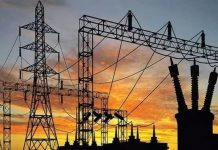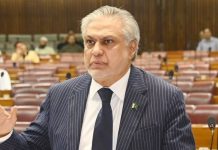ISLAMABAD: The Public Private Partnership Authority’s (P3A) board has okayed three major National Highway Authority projects, which will be built on a build-operate-transfer basis.
Saba Siraj, a spokesperson for P3A, told WealthPK that these projects include the construction of the Sialkot-Kharian Motorway, the Sukkur-Hyderabad Motorway (M6) and the Kharian-Rawalpindi Motorway.
She said the P3A Board had approved the project proposals for construction of the Sukkur-Hyderabad Motorway (M6) and the Kharian-Rawalpindi Motorway on a public-private partnership basis during its 20th meeting held on February 18.
She told WealthPK that the M6 project entails the building of a 306-kilometre green-field controlled-access motorway at a cost of Rs307 billion. Likewise, a 117-kilometre four-lane (convertible to six-lane) green-field Kharian-Rawalpindi motorway will cost Rs80 billion, she added.
The P3P spokesperson said that the 70-kilometre four-lane green-field access-controlled Sialkot-Kharian Motorway project would cost Rs27 billion.
Saba Siraj said that the projects of NHA are based on build-operate-transfer implementation modality.
She informed WealthPK that the P3A works under the ministry of planning, development and special initiatives to build and rehabilitate infrastructure.
She said the establishment of the authority was necessitated to mitigate the delays during the execution of projects under the Public Sector Development Programme (PSDP). She added that delays in release of funds under PSDP often stalled major infrastructure projects.
According to the ministry’s spokesperson, involving the private sector not only bridges the infrastructure finance gap, but also improves efficiency, transparency and prevents cost and time overruns.
Through increasing private sector engagement, the government of Pakistan seeks to speed up construction of national highways, motorways, tunnels, and bridges, therefore encouraging economic growth and eliminating poverty.
The participation of the private sector in public sector projects leaves the government with enough money to fund the projects that help stimulate economic growth.
Infrastructure investment is often regarded as the most efficient and sustainable strategy for a country’s long-term economic growth and development. Inadequate infrastructure, on the other hand, suppresses growth and trade, as well as produces widespread inefficiencies and productivity losses, resulting in lower tax revenues for governments.
According to World Bank estimates, Pakistan would need to invest a total of $76 billion by 2030 to improve road infrastructure, which equates to spending 2.3% of GDP each year from 2020 to 2030 to strengthen the economy and to achieve Sustainable Development Goals.
However, to satisfy the country’s entire public infrastructure demands, the government has limited public sector spending. To narrow this gap, the government has made a conscious decision to encourage private sector participation for investments and expertise in infrastructure development projects and establish P3A which assists the government in securing financing from private sector to meet the country’s overall infrastructure needs.
INP






